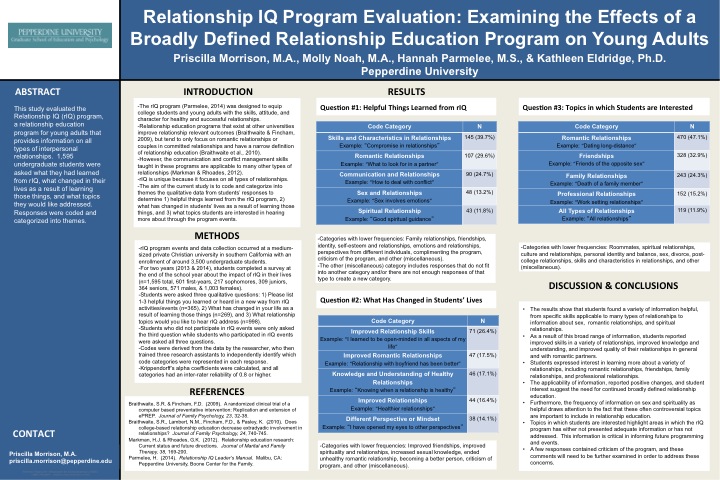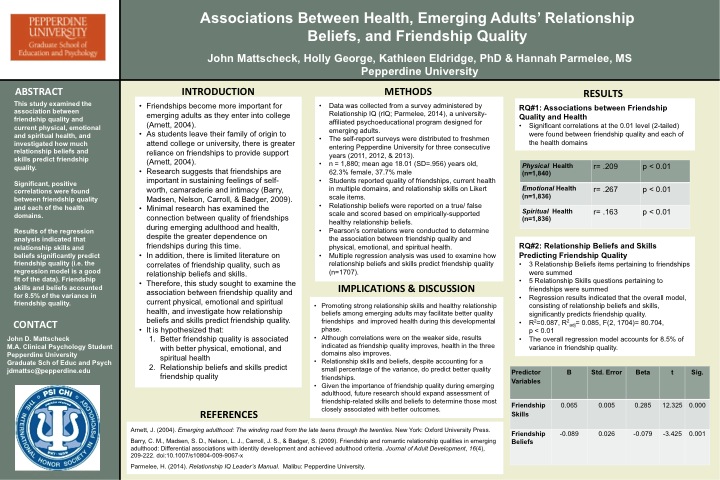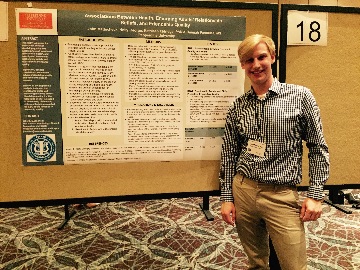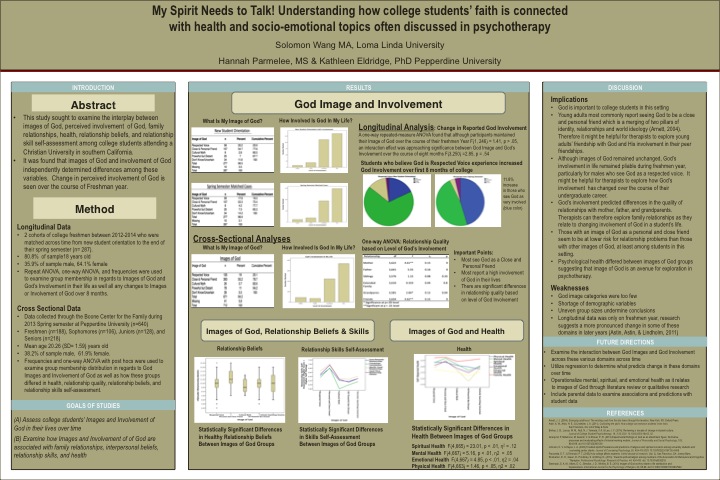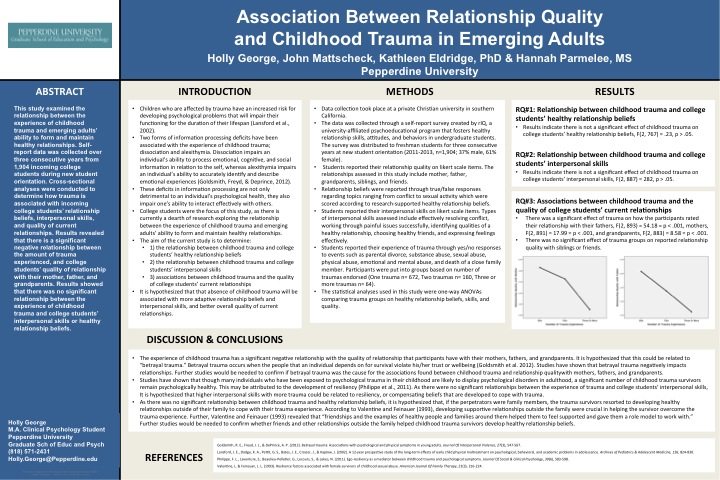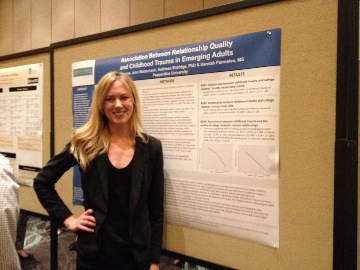For leaders: rIQ Research

rIQ conducts research on program effectiveness and young adult relational and spiritual development. Our research team is comprised of Pepperdine University faculty, Graduate School of Education and Psychology student research assistants, and doctoral students.
Students report benefiting significantly from Relationship IQ. We have also found significant correlations between relational health and physical health. To learn more about our findings browse the poster presentations listed below.
Our research team has presented posters at professional conferences and continues to research the ongoing work of rIQ.
If you would like more information about our current research efforts or would like to conduct research on your use of rIQ, please contact us and we would be glad to assist you.
